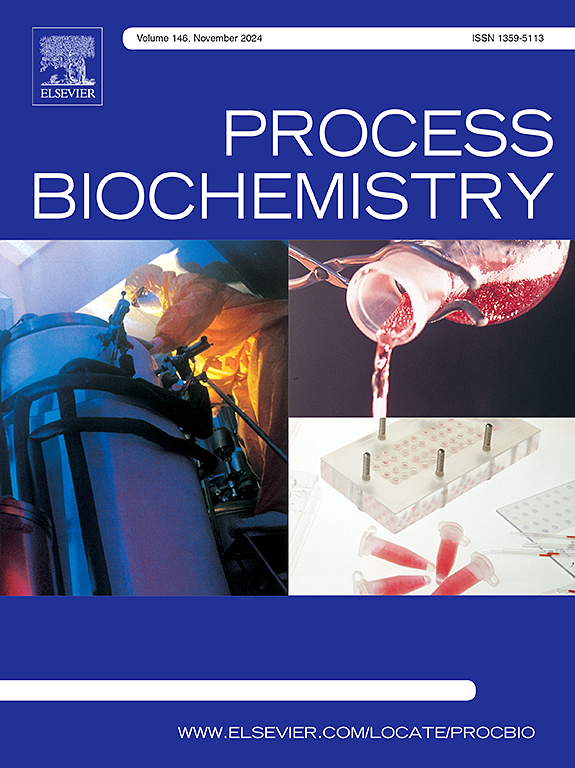Untargeted exometabolic profiling unveils natural product repertoire of the fast-growing cyanobacterium Synechococcus elongatus PCC 11801
IF 4
3区 生物学
Q2 BIOCHEMISTRY & MOLECULAR BIOLOGY
引用次数: 0
Abstract
Synechococcus elongatus PCC 11801 is a fast-growing cyanobacterium with demonstrated potential to be employed as cell factory for photosynthetic biomanufacturing. Cyanobacteria are also a source of several natural products and bioactive compounds. We employed untargeted metabolomics of spent culture media to (i) characterize extracellular metabolite profiles associated with varying nutrient availability, and (ii) explore the natural product biosynthesis capacity of PCC 11801. We identified over 200 metabolites with high-confidence spectral matching against MS2 library, including several terpenoid secondary metabolites and bioactive compounds widely used in the cosmetic, fragrance, and pharmaceutical industries. We observed higher diversity and concentrations of such metabolites in 1X BG-11 medium, while PCC 11801 displayed extended growth phase and 6-fold higher biomass on 5X BG-11. Our findings highlight the diversity and abundance of primary and secondary metabolites produced by PCC 11801, and the potential of the cyanobacterial strain as a host for sustainable production of bioactive compounds.
非靶向外代谢分析揭示了快速生长的蓝细菌长聚球菌PCC 11801的天然产物库
长聚球菌PCC 11801是一种快速生长的蓝藻,具有作为光合生物制造细胞工厂的潜力。蓝藻也是几种天然产物和生物活性化合物的来源。我们使用废培养基的非靶向代谢组学来(i)表征与不同营养可用性相关的细胞外代谢物谱,以及(ii)探索PCC 11801的天然产物生物合成能力。我们鉴定了200多种代谢产物,与MS2文库进行了高置信度的光谱匹配,其中包括一些萜类次生代谢物和广泛应用于化妆品、香料和制药行业的生物活性化合物。我们观察到这些代谢物在1倍BG-11培养基中具有更高的多样性和浓度,而PCC 11801在5倍BG-11培养基中表现出更长的生长期和6倍的生物量。我们的研究结果强调了PCC 11801产生的初级和次级代谢物的多样性和丰富性,以及该蓝藻菌株作为可持续生产生物活性化合物的宿主的潜力。
本文章由计算机程序翻译,如有差异,请以英文原文为准。
求助全文
约1分钟内获得全文
求助全文
来源期刊

Process Biochemistry
生物-工程:化工
CiteScore
8.30
自引率
4.50%
发文量
374
审稿时长
53 days
期刊介绍:
Process Biochemistry is an application-orientated research journal devoted to reporting advances with originality and novelty, in the science and technology of the processes involving bioactive molecules and living organisms. These processes concern the production of useful metabolites or materials, or the removal of toxic compounds using tools and methods of current biology and engineering. Its main areas of interest include novel bioprocesses and enabling technologies (such as nanobiotechnology, tissue engineering, directed evolution, metabolic engineering, systems biology, and synthetic biology) applicable in food (nutraceutical), healthcare (medical, pharmaceutical, cosmetic), energy (biofuels), environmental, and biorefinery industries and their underlying biological and engineering principles.
 求助内容:
求助内容: 应助结果提醒方式:
应助结果提醒方式:


